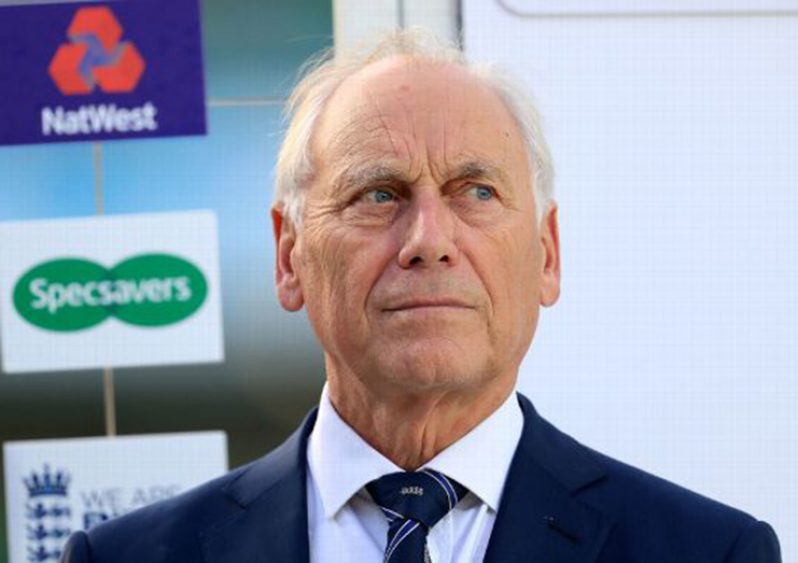By Nagraj Gollapudi and Osman Samiuddin
NEARLY a month-and-a-half after Shashank Manohar stepped down and the International Cricket Council (ICC) said it would have the process to appoint his successor ready, the organisation’s website still has Manohar’s portrait and profile on its ‘Meet the Chairman’ page.
Not only is the ICC not close to finding a successor, it’s not close to finding a way to appoint the successor.
As a board meeting on Monday revealed, the ICC remains severely divided over what the nomination process to replace Manohar, who was the governing body’s first independent chairman, should be. In the meantime, the ICC’s deputy chairman Imran Khwaja remains the interim chairman.
THE STUMBLING BLOCK
Manohar stepped down on June 30. In a media release on July 2, the ICC said: “The process for the Chairperson election is expected to be approved by the ICC Board within the next week.” Instead, members have come unstuck over the election process, unable to decide whether the process should be based on a two-thirds majority of the board or a simple majority, and even how they would vote for the process to be changed.
This status quo has persisted since Manohar entered the final bend of his second term. Despite having another two-year term available, Manohar had alerted key people within the ICC Board well in advance that he would be stepping down when his term ended. Before heading out he attempted to find a consensus for a unanimous choice, but failed.
As per the ICC’s constitution any present or former director who has attended at least one board meeting is eligible to run for chairman. ICC directors are each allowed to nominate one candidate and nominees, with the support of two or more directors, are eligible to contest an election.
The election process itself is determined by the ICC Board and can vary every election. In 2016, when he took charge for the first time, Manohar was elected through a secret ballot. Two years later he was the sole nominee and was re-elected unanimously without a vote.
This time, though, the board has yet to find consensus on the process.
NO MORE SECRET BALLOT
The constitution also calls for a secret ballot when it comes to electing a chairperson, but at least one board member says the vast majority of the board has rejected this method. With respect to directors’ voting rights, the ICC constitution says any decision taken “shall be decided on a show of hands … unless two or more Voting Board Members present at the meeting request a secret ballot for the voting on a particular Resolution of Directors (in which case a secret ballot shall be held).”
Even in the case of picking a winner on the basis of simple majority, which can be done via a show of hands, there is no consensus. One example discussed at one of the meetings was what happens if there is only one nominee: would that need a two-thirds majority or to be elected unopposed by a simple majority? There was a split verdict.
SHORTAGE OF POPULAR CONTENDERS
Manohar was a popular choice and was elected for two terms, but the short group of contenders is finding it hard to earn similar trust from the wider section of the ICC Board.
In addition to Khwaja, outgoing ECB chairperson Colin Graves, Cricket New Zealand chairman Greg Barclay and BCCI president Sourav Ganguly have been touted as key contenders. At one point Graves was a frontrunner and seemed to have the backing of the BCCI, too, but it is understood the support for him on the ICC Board falls short of the majority mark.
Ganguly could gain backing, but has not made a public comment. It is believed he is not keen to give up the BCCI job, which as per the rules expired on July 27. Ganguly’s future at the BCCI is likely to be decided on August 17 when the Supreme Court of India is expected to hear the matter.
TWO-THIRDS OR SIMPLE MAJORITY?
The board comprises 17 directors: 12 full members, three directors representing the Associates, and the chairman (Khwaja is one of the Associate representatives as well as interim chair, currently), the ICC chief executive officer (Manu Sawhney) and an independent woman director in Indra Nooyi.
The CEO does not have a vote and for any resolution to be approved, the ICC constitution currently requires a two-thirds majority, or a minimum of 11 votes.
Some members on the board, however, want to change to a simple majority both to pass any resolution as well as for the purposes of an election. (ESPN Cricinfo)




.png)









